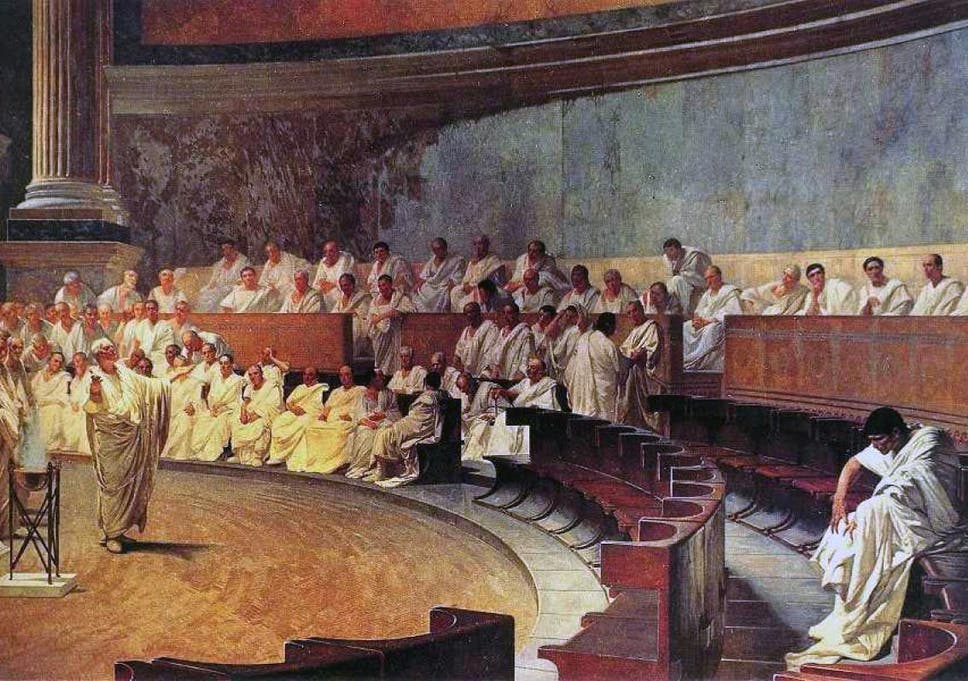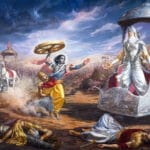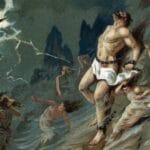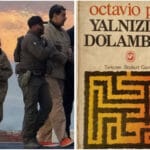The similarity between democracy and demagogy is not merely that both are products of the ancient Hellenic polity. Democracy has, from the time of ancient Athens to today, mostly been on the agenda as a “demagogy.” If demagogy is empty and often meaningless verbiage, it would not be an exaggeration to say that much of what is written and spoken about democracy is nothing but demagogy.
Giovanni Sartori, the author of Return to the Democratic Theory says, “It is impossible to separate ‘What is democracy?’ from ‘What should democracy be?’” British statesman Churchill, on the other hand, said, “If the alternatives (i.e., Fascism and Stalinism) are not considered, democracy is the worst regime humanity has developed.”
Undoubtedly, critiques of democracy by philosophers like Aristotle, Plato, or, in the modern period, Montesquieu, J.J. Rousseau, A. de Tocqueville, Marx, Weber, C. Schmitt, and Schumpeter are not demagogic, at least because they address democracy in the context of concrete economic-political and power relations and speak frankly. However, distinguishing between the demagogy that refers to these philosophers and their actual views has become nearly impossible.
What is the root of the problem? We call the searches and methods aimed at assimilating the contradiction of the hegemons-the-ruled, the property owner-the propertyless, the strong-the weak, which started with the early history of human beings adopting a collective and settled life, that is, when some people first said, “this place belongs to me, this is mine”, “politics”. The root of the issue lies here: the balancing, concealing, or exposing of the division between the hegemons and the ruled within the form of the state has produced formulas like democracy, aristocracy, monarchy, tyranny, and oligarchy. That is, including democracy, all these formulas were developed primarily not to cleanse but to justify what Hegel called the main contradiction of history, the master-slave distinction, as a collective “sin.” When St. Augustine said, “The state is the atonement for human sins,” he was referring to this as well.
Democracy, in this sense, is a formula well-suited to demagogy. For it has quite delightful and mythical definitions, from “govern the people allegedly for the benefit of the people” to “direct governance by the people themselves,” from “popular sovereignty” to the political realization of equality and freedom. Although almost all great thinkers, including enlightenment philosophers, treated concept of democracy with criticism or even irony until the 20th century, the Western glorification of democracy has now reached a point where almost all philosophers are retrospectively attributed with verses praising democracy. Demagogy, in essence, is speaking as if to say something but actually say nothing. Today, democracy has become a language of non-speaking regarding everything discussed about it. For example, Westerners not speaking with the rest of the world, humiliating them, not speaking with their own workers, peasants, and immigrants, or not confronting their dirty history and subconscious—that is today’s democracy.
Or democracy is the “code” for world domination; wherever democracy has gone, it means that place has been “conquered” for Westerners. If you start discussing an issue or topic with sentences constructed around “democracy,” you begin not to speak and start exchanging messages through encrypted references and implications. For instance, if a leftist intellectual says, “There is no democracy in Türkiye,” they mean, “The state favors the right and oppresses the left.” If an Islamist says it, they mean, “The army should soften its stance on secularism.” Or for a Kemalist of the İnönü school, the true meaning of this sentence is, “The people relies on religious people, Kurds and liberals. Hitler came to power in this way. Democracy is in danger!”
The state, while defining the Republic of Türkiye in its constitution, emphasized its democratic nature but stated, “The nation exercises its unconditional sovereignty through constitutional organs.” That is, even the state is not exempt from demagogy. Some people, meanwhile, have reduced “all good things” that they previously expressed through socialism, liberalism, or Islam to a fashionable rhetoric of democracy and have surrendered their minds to a trap of conceptual ignorance and barrenness.
So what are we talking about? Are we, then, among those infidels denying “democracy,” which the whole world has embraced, revered, and even shed innocents’ blood to develop it as the highest value of humanity that has been achieved? God forbid! We, as shyly and sincerely as possible, are trying to say this: if a concept has become so sweetly and deliciously entrenched in the language of the hegemons, it is necessary to look at it with a bit of suspicion and ask, “What do they mean?” Why do all the bloodsuckers of the world, all the thieves, ominous people, clowns, buffoons and sycophants of Türkiye sing the praises of democracy five times a day? Have they embraced ultra-humanism to such an extreme and by virtue of that they have found the true path, or are they trying to share their wealth, power, and property with “us”?
Or are those who say, “Türkiye is the only secular and democratic country in the Islamic world” trying to say that it is an agent-country of the West? Or do those who now say, “We are conservative-democrats” mean, “We also acknowledge your order; just make a small place for us”? Do those who say, “The rule of ignorant masses leads to fascism” actually mean, “We only agreed with the British under the guise of a Republic for the sovereignty of us and our close circle. Where did this democracy come from? If it has to be, let it at least be a secular version that doesn’t disrupt our rule”? Anyone can multiply such questions. All lead to the intersection of demagogy and democracy.
Then we can get to the heart of the matter. Democracy must first be discussed democratically, that is, with frank and transparent intentions. If everyone continues to speak ambiguously, employing codes, implications, and references to actually avoid speaking, then we have the right to be deaf to all sentences constructed with the word “democracy.” For it is clear that everyone is collectively playing a game of deception and lies. If the “game of democracy” is truly not a game of mutual deception, then at the very least, serious people who take this issue serious can discuss the true meaning and substance of democracy.
Türkiye’s Achilles Heel of Democracy
Democracy in Türkiye is not a complementary continuation of the Republic in the sense of the process of the state being included and governed by the nation as a continuation of the liquidation of the monarchy, but rather the result of a forced choice of the state, which has been taken from the society, based on external dynamics. This choice was made as part of a comprehensive package—military, economic, and ideological—required by inclusion in the Western bloc during the Cold War.
It is evident that the new ruling elite, which replaced the Ottoman ruling class, allocated the state to themselves while leaving the mundane tasks to representatives of the people and then initiated the game of democracy. In this sense, Türkiye’s democratic experience is a fascinating laboratory demonstrating what democracy is not.
Alexis de Tocqueville stated, “In France, democracy finds its origins not in society but in places that seek to exclude society from the process.” The situation is the same in Türkiye. Under these circumstances, the sore spot—or Achilles heel—of Türkiye’s democracy lies not in a fair system of representation and participation that enables the nation to appropriate and continuously oversee the state but rather in an ideological and political hegemony that perpetually defers or even obstructs this process. Those who establish or have established this hegemony have determined and controlled all the rules and outcomes of the democracy game. It is naive to expect the state, with its socio-economic order that is corporatist rather than class-based and its administrative personnel that has become caste-based, to democratize while it is under a covert siege that legitimizes itself through covert agreements made with external dynamics rather than the nation. In that case, the issue is tied to a struggle for democracy that will preserve and develop all the gains of the 70-odd-year-old lame democracy game, while also changing the Achilles heel of democracy. Establishing a new form of hegemony that takes into account the natural rhythm of political maturation and aims for an organic democratization that will decipher and resolve this implicit siege, and insuring it with solid legal-principled foundations, will be the primary step of this struggle. In this sense, a principled stance based on internal dynamics—embracing the nation, its history, and its values—is as significant as the struggle for democracy itself in achieving real democracy. The democratic struggle carried out by the people through elections, which is their only political extravagancy, and through parties and other mass organizations, is carried out in order to take a role in about thirty percent of the power area.
The struggle for democracy should be carried out to build a new ideological-political hegemony by breaking the veiled hegemony, which is predominantly Anglophile, with the aim of ensuring the undisputed sovereignty of the nation, the absolute independence of the state and the country achieving its historical and universal missions. The objective of this struggle should be to gain influence over the approximately 70% of the actual domain of power.
The democratic struggle, even at its minimum level, has a social and political character based on democratic legitimacy. The struggle for democracy, however, must be based on ideological legitimacy and have a Jacobin character. If the subject is “absolute/real power,” then this is the rule of the game. The Jacobin character meant here is not a top-down, totalitarian oppression in defiance of the people, but on the contrary, an ideological autonomy based on the people, pluralistic and in defiance of the existing dominant powers. The Jacobinism of the rulers means oppression and terror against the people, while the Jacobinism of the nation’s elites means intellectual/political armoring and defense against the hegemons.
The first step to be taken regarding democracy in Türkiye is to carefully distinguish democracy from any kind of demagogy that contains the word democracy in large quantities. It should be a priority theoretical-political effort to “decipher” the status quo forces that use democracy as a cover for the formula of “government despite the nation” and the neoliberal/globalist Western elements that use it as a mask for the formula of “government by using the nation”. Demagoguery of democracy is a dissimulation of the power struggle within the rulers that continues between the market-oriented, stockbroker Westernists and the so-called nationalist, status quoist Westernists, forcing us, our country, our nation to choose between plague and cholera. The former continue their fight with the status quoists by pretending to support the religious-conservative masses, through the nation, just as Catholics continue their fight with Protestants and Jews through the Palestinians. The latter, on the other hand, have based their entire existence on keeping the nation out of the game and making it powerless, dispossessed and irreligious for this purpose, so they have started to defend the “democracy” of the trenches they have built by blending a little bit of the republicanism, a little bit of secularism, a little bit of modernism and a little bit of Kemalism with official procedures. Freeing the nation from this dual grip and empower it with the possibilities of true democracy is only possible through a Jacobin democratic stance that defends the nation’s organic reflexes. Those who choose between plague and cholera, those who side with one of these two evil fronts, those who satisfy their passions with temporary roles they assume in the empty game of democracy, should not neglect to have a “democratic shelter” to which they can flee after the first slap or beating they receive. Because every “game” in which you are not the decision maker is a tragedy.
Türkiye will not abandon democracy as it is the most suitable system for the development and strengthening of the nation. However, democracy for Türkiye will be the product of a determined and competent struggle for real democracy—that is, the full and absolute sovereignty of the nation over the country and the state.
Source: Özcan, Ahmet, A Man Without a Cause is No Man, Yarın Publishing.








